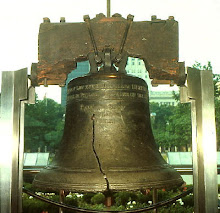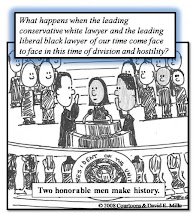
Cutting edge California is again ahead of the curve, as reported at Wired.com For defense attorneys, it is an exciting victory. They are for the first time submitting a next-generation lie-detection test as evidence in court.
In an upcoming juvenile-sex-abuse case in San Diego, the defense is hoping to get an MRI scan, which shows activity levels based on oxygen levels in the brain, admitted to prove the abuse didn't happen.
The technology is used widely in brain research, but hasn't been fully tested as a lie-detection method. To be admitted into court, any technique has to be "generally accepted" within the scientific community.
The company that did the brain scan, No Lie MRI, claims their test is over 90 percent accurate, but some scientists and lawyers are skeptical.
"The studies so far have been very interesting. I think they deserve further research. But the technology is very new, with very little research support, and no studies done in realistic situations," Hank Greely, the head of the Center for Law and the Biosciences at Stanford, wrote in an e-mail to Wired.com.
Lie detection has tantalized lawyers since before the polygraph was invented in 1921, but the accuracy of the tests has always been in question. Greely noted that American courts and scientists have "85 years of experience with the polygraph" and a wealth of papers that have tried to describe its accuracy. Yet they aren't generally admissible in courts, except in New Mexico. Other attempts to spot deception using different brain signals continue, such as the EEG-based technique developed in India, where it has been used as evidence in court.
No Lie MRI, headquartered in San Diego with a testing facility in Tarzana, California, says the defendant's fMRI tests show he wasn't lying when he said he had not abused the minor.
The company declined to be interviewed for this story, but its founder and CEO, Joel Huizenga, spoke to Wired.com in September about the technology.
"This is the first time in human history that anybody has been able to tell if someone else is lying," Huizenga said.
Though its scientific board includes fMRI experts such as Christos Davatzikos, a radiologist at the University of Pennsylvania, some outside scientists and bioethicists question the veracity of the findings.
"Having studied all the published papers on fMRI-based lie detection, I personally wouldn't put any weight on it in any individual case. We just don't know enough about its accuracy in realistic situations," Greely said.
Laboratory studies using fMRI, which measures blood-oxygen levels in the brain, have suggested that when someone lies, the brain sends more blood to the ventrolateral area of the prefrontal cortex. In a very small number of studies, researchers have identified lying in study subjects with accuracy ranging from 76 percent to over 90 percent (.pdf). But some scientists and lawyers like Greely doubt that those results will prove replicable outside the lab setting, and others say it just isn't ready yet.
"It's certainly something that is going to evolve and continue to get better and at some point, it will be ready for prime time. I'm just not sure it's really there right now," said John Vanmeter, a neurologist at Georgetown's Center for Functional and Molecular Imaging. "On the other hand, maybe it's good that it's going to start getting tested in the court system. It's really been just a theoretical thing until now."
The rest of the story, as Paul Harvey used to say, is here:
It is a long and controversial piece, sure to generate discussion on both sides of the aisle.
































No comments:
Post a Comment